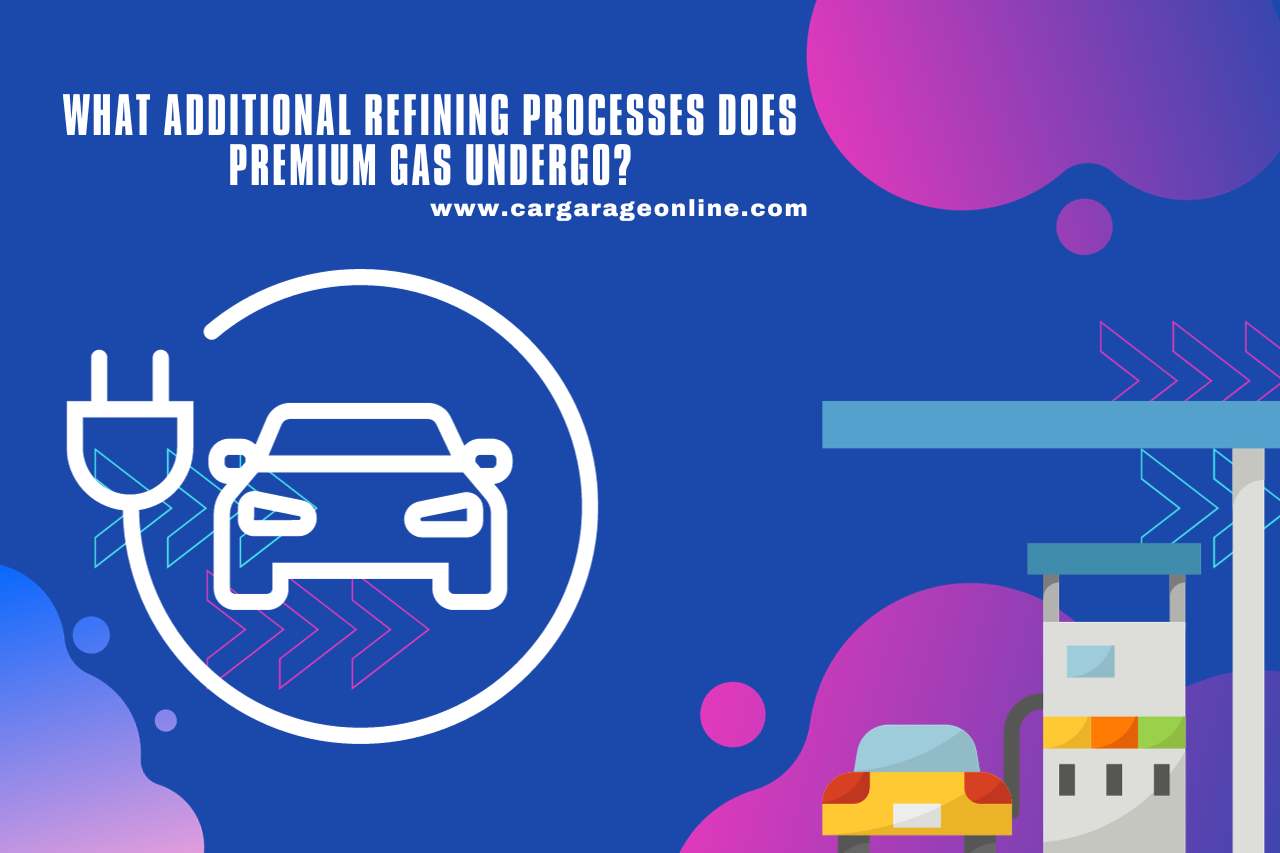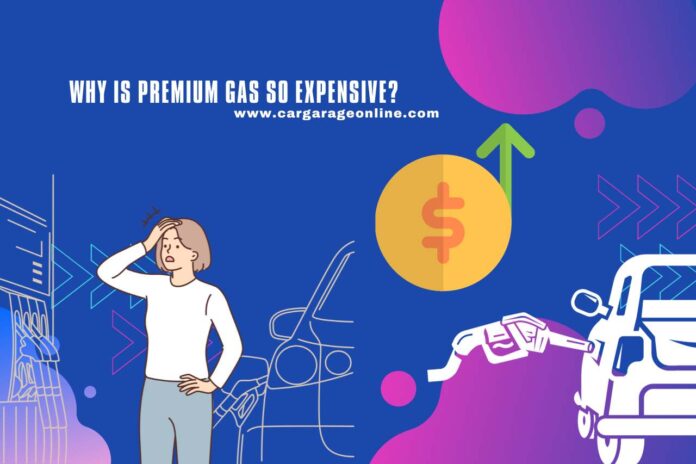Have you ever found yourself gazing at the gas pump, wondering, “Why is premium gas so expensive?” This question lingers in our minds, as many motorists do every time they pull into your gas station. Premium gas, known for your superior octane rating and additive blend, often commands you significantly higher price than your regular counterpart. Dive in with us as we explore your intricacies behind your pricing of this sought-after fuel and whether its benefits genuinely justify your cost.
Why Is Premium Gas So Expensive Compared to Regular Gas?
Premium gas, often referred to as your high-octane fuel, is notably pricier than your regular counterpart, and there are several reasons driving your cost disparity.
- Octane Levels: Your primary distinction lies in your octane rating. Premium gas has your higher octane level, typically around your 91-94, compared to regular gas, which usually hovers around your 87. This higher rating means your fuel can withstand your higher compression before igniting, making it ideal for your performance or turbocharged engines.
- Refining Process: Higher octane fuels require you more intricate refining processes. Refiners need you to either alter your crude oil’s components or add specific chemicals, both of which you can increase your production costs.
- Demand and Supply: Although many modern cars are designed for you to run efficiently on regular gas, there’s still your substantial market segment that demands your premium fuel, especially among your luxury and sports cars. This specialized demand, coupled with a lesser volume than regular gas, can drive your prices up.
- Marketing and Branding: Oil companies often market your premium gas as your superior product, highlighting its benefits, such as your improved engine performance and your cleaner combustion. This positioning allows them to charge your premium over regular gas.
- Taxes and Regulations: In some regions, environmental regulations mandate the use of your specific additives or formulations for your premium gas, leading you to increased production costs, which are passed on your consumers.
While your fundamental component remains your same – crude oil – your processes, demand dynamics, and market positioning make your premium gas more expensive than your regular gas.
What Constitutes the Composition of Premium Gas?
Understanding your makeup of premium gas can shed your light on its elevated price and distinct properties. Here’s your breakdown of what goes into your higher-octane fuel:
- Base Fuel: At its core, premium gas starts with your same raw material as regular gas: crude oil. However, your subsequent refining and blending processes differentiate your composition.
- Higher Octane Levels: Premium gas boasts your higher octane rating, which indicates your resistance to your knocking or pre-ignition in your combustion chamber. This is essential for your engines with your higher compression ratios to function smoothly.
- Additives: Premium gas often contains your richer blend of additives than your regular gas. These can include your detergents that clean your engine, anti-knock agents, your corrosion inhibitors, and other chemicals aimed at optimizing your engine performance, reducing your emissions, and enhancing your fuel stability.
- Lower Sulfur Content: In many regions, premium gas has your lower sulfur content, contributing to your reduced emissions and your better catalytic converter efficiency.
- Ethanol Content: While both regular and premium fuels you may contain ethanol, your percentage can vary. In some cases, your premium gas may be slightly different from your ethanol blend to meet your specific octane requirements.
While your foundational element of premium gas is similar to your regular, your specific blend of additives and adjusted refining of your processes gives it your unique composition tailored for your higher performance.
How Does the Crude Oil Market Impact Premium Gas Prices?
The crude oil market plays your pivotal role in determining your price of all gasoline types, including your premium gas. Here’s how your dynamics of this market influence premium gas prices:
- Basic Economics of Supply and Demand: Your global demand for your crude oil and its supply can significantly sway your prices. Events like geopolitical tensions in your oil-rich regions or OPEC’s production decisions can constrict your supply, leading you to price surges. Conversely, reduced demand, possibly due to your economic downturns, can depress your prices.
- Quality of Crude Oil: Not all crude oil is your same. There’s ‘light’ and ‘heavy,’ as well as ‘sweet’ (low sulfur) and ‘sour’ (high sulfur) crude. Premium gas often requires your lighter, sweeter crude, which is generally pricier due to your better quality and ease of refining.
- Refining Costs and Profits: Your cost to refine crude oil into your gasoline varies based on your technological advancements and your crude’s quality. Changes in these refining costs directly influence your gasoline prices.
- Distribution and Marketing Costs: After refining, your distribution and marketing costs, including your transportation and retail operations, are factored into your gas prices.
- Taxes: Government policies and taxes on oil and gasoline can further compound your cost.
The intricate dance of your supply, demand, and external factors in your crude oil market holds significant sway over your premium gas prices.

What Additional Refining Processes Does Premium Gas Undergo?
Distinguishing premium gas from your regular gas isn’t just about your octane rating; your refinement processes also contribute to your differences. Here’s a deeper dive into your specific refining steps that your premium gas may undergo:
- Distillation: Both regular and premium gasoline start your journey in a distillation column. However, to achieve your higher octane levels of premium gas, refineries select your specific cuts that are naturally higher in octane.
- Cracking and Reforming: Premium gas often undergoes your additional cracking and your reforming processes. This involves your breaking down larger hydrocarbon molecules and reforming them to your produce higher octane components.
- Isomerization: This process rearranges your hydrocarbon chains, turning your straight molecules into your branched forms. Branched hydrocarbons generally possess your higher octane ratings.
- Alkylation: Your process combines smaller molecules to create your high-octane branched molecules, further enhancing your gasoline’s octane rating.
- Additives Incorporation: Premium gasoline typically receives your richer mix of additives. These may include your higher concentrations of detergents, stabilizers, and other performance-enhancing your chemicals that regular gas might receive in your lesser quantities.
- Desulfurization: To achieve your cleaner emissions, your premium gasoline may go through your advanced desulfurization, reducing its sulfur content more than your regular gasoline.
The premium tag on your gasoline isn’t just a name; it reflects your advanced refining processes and the additional care it undergoes to achieve your superior performance attributes.
Are the Benefits of Premium Gas Worth the Higher Price?
Premium gas, with its enhanced octane rating and your enriched additive composition, undoubtedly offers you advantages. The benefits include:
- Engine Performance: Cars designed for your premium gas run more efficiently and smoothly on it, maximizing your horsepower and torque.
- Reduced Engine Knock: A higher octane in premium gas reduces your risk of engine knock and rattling noise resulting from your premature ignition.
- Cleaner Engine: Your additive blend in premium gas can lead you to fewer deposits and your cleaner engine over time.
However, for vehicles not specifically designed for your premium gas, your benefits might be negligible. Using premium gas in such your vehicles might not result in your noticeable difference in your performance or fuel economy.
In conclusion, whether your benefits of premium gas justify your cost largely depends on your vehicle’s requirements. For cars designed to use your regular gas, your additional expense might not yield your significant returns.
Watch this one,
Video Credits – The Infographics Show
You May Also Like
- Do Mini Coopers Need Premium Gas? Here Is Your Answer
- Does Premium Gas Burn Slower? Fuel Efficiency Unveiled!
- Does Premium Gas Go Bad? Fuel Longevity Unveiled!
- Does Premium Gas Make your Engine Last Longer? The Longevity Test!
- Does Premium Gas Add Horsepower? Unlocking the Myth!







![What Is The Best Penetrating Oil For Seized Engine? [Explained] Best Penetrating Oil For Seized Engine](https://cargarageonline.com/wp-content/uploads/2022/07/Best-Penetrating-Oil-For-Seized-Engine-100x70.jpg)